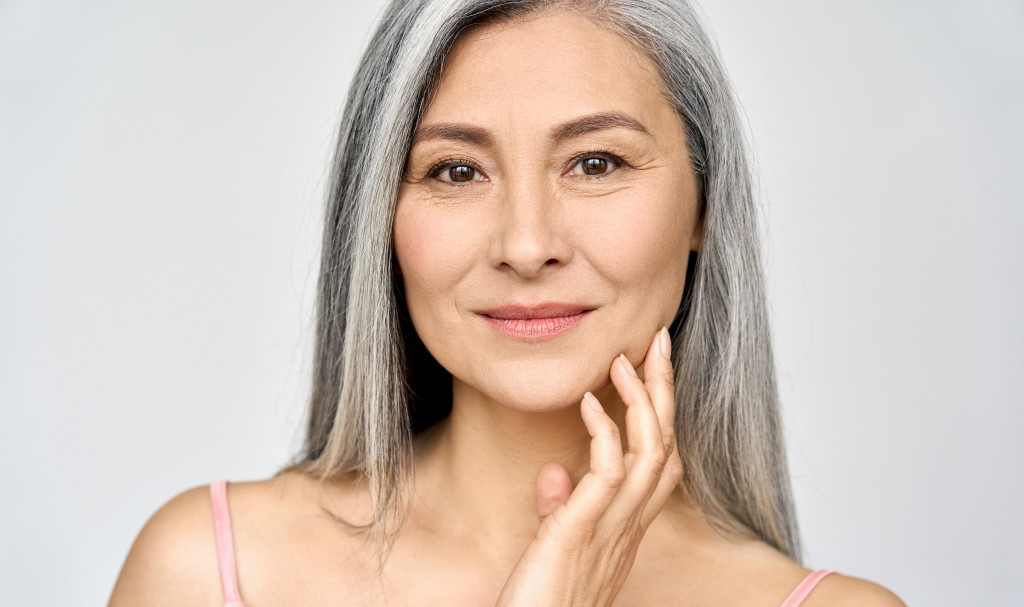• Hyperhidrosis is excessive sweating, which medical conditions, medications, overactive sweat glands, stress and anxiety, and lifestyle choices can cause.
• Sweating more than usual can lead to skin irritation, odor, depression, social anxiety, and decreased quality of life.
• Treatment for hyperhidrosis can include antiperspirants, medications, and surgery.
• If you’re experiencing excessive sweating, talk to your healthcare provider about the best treatment options.
Sweating is a natural process that the human body undergoes to regulate body temperature. However, when sweating becomes excessive, it can be a cause for concern. Excessive sweating, known as hyperhidrosis, can affect a person’s daily activities and lead to social anxiety. Here’s everything you need to know about excessive sweating, including its causes, symptoms, and treatment options.
What is Hyperhidrosis?
First, you need to know what hyperhidrosis is. Hyperhidrosis is characterized by excessive sweating, regardless of the temperature or other conditions. While everyone sweats to some degree, those with hyperhidrosis sweat up to four times more than average and in areas not typically associated with sweating.
Symptoms of Excessive Sweating
The most common symptom of hyperhidrosis is excessive sweating, especially in the palms of the hands, soles of the feet, and underarms. Sweat patches on clothing, skin irritation, and odor are also common symptoms. Some people with hyperhidrosis may also experience emotional effects such as depression and social anxiety. These symptoms can significantly impact a person’s quality of life.
Causes of Excessive Sweating
There are various reasons why you might be experiencing hyperhidrosis. Here’s what you need to know about it.
Medical Conditions
Certain medical conditions such as infections, diabetes, hyperthyroidism, menopause, or obesity can cause excessive sweating. These conditions may trigger an overactive sweat gland and change the body’s hormone levels, leading to profuse sweating. Proper diagnosis and timely treatment of the underlying disease can help manage sweating.

Medications
Some prescription drugs, such as antidepressants, antipsychotics, blood pressure medications, and chemotherapy drugs, can cause sweating as a side effect. If you experience excessive sweating after starting a new medication, consult your healthcare provider and ask about alternative medicines or dosage adjustments that may help.
Overactive Sweat Glands
People with overactive sweat glands may experience excessive sweating without any underlying medical conditions or medications. This condition is known as primary hyperhidrosis and can affect the armpits, palms, soles, and face. The exact cause of overactive sweat glands is unknown, but it may be inherited in some cases. Over-the-counter antiperspirants, prescription anticholinergic drugs, or nerve-blocking injections may help manage this condition.
Stress and Anxiety
Your emotions can impact your sweat levels as well. Stressful situations trigger the release of hormones such as cortisol and adrenaline, making you perspire more. Anxiety and excessive worrying can also lead to sweating. Practicing relaxation techniques such as meditation, yoga, and deep breathing exercises can help reduce stress and anxiety levels, thereby reducing sweating.
Diet and Lifestyle Choices
Certain foods and drinks, such as caffeine, alcohol, and spicy foods, can make you sweat more. Moreover, wearing tight-fitting or synthetic clothing and shoes can trap moisture and lead to sweating. Opt for loose, breathable cotton clothes and footwear that provide room for air circulation. Stay hydrated and consume a healthy, balanced diet of fruits, vegetables, lean protein, and whole grains.
Physical Effects of Excessive Sweating
Hyperhidrosis can affect your physical, mental, and emotional health. Here are some of the physical effects of excessive sweating.

Wrinkles
One of the most common physical effects of excessive sweating is wrinkles. When the skin stays wet for prolonged periods, it can lead to wrinkles, especially in areas such as the face and neck. You can Botox treatment for this. Botox utilizes toxins to restrict sweat gland activity and reduce the appearance of wrinkles. Visit your local botox clinic if you want this treatment. They can check whether you have allergies or any medical conditions that would make you unsuitable for treatment.
Skin Irritation and Infections
Excessive sweating can also cause skin irritation and infection as sweat mixes with dirt, bacteria, and other debris on the skin. This can lead to rashes, eczema, folliculitis (infected hair follicles), and other skin conditions. Wear loose, breathable clothing made of natural fabrics and keep your skin clean and dry to reduce the risk of irritation or infection.
Treatment Options for Hyperhidrosis
While there is no cure for hyperhidrosis, several treatment options are available to help manage it. Some treatments focus on reducing sweating, while others target underlying medical. Antiperspirants, medications, and surgery are some of the most commonly used treatments for excessive sweating.
- Antiperspirants: The first line of defense against excessive sweating is antiperspirants. These products contain aluminum chloride or a similar substance that blocks sweat glands in the armpits and other areas. Over-the-counter antiperspirants are available, and stronger prescription versions may be recommended depending on the severity of your sweating.
- Medications: Anticholinergic medications can help reduce excessive sweating by blocking acetylcholine, a chemical that transmits signals between nerve cells. These drugs must be taken daily and can cause side effects such as dry mouth, dizziness, and blurred vision.
- Surgery: For severe cases of hyperhidrosis, surgery may be an option. Endoscopic thoracic sympathectomy (ETS) is a type of surgery used to permanently stop the overactivity of sweat glands by cutting off certain nerves that control sweating. This procedure is typically reserved for cases in which other treatments have failed.
Excessive sweating, or hyperhidrosis, can affect a person’s quality of life and cause embarrassment and anxiety. Although the exact cause of this condition is unknown, lifestyle choices can all contribute to excessive sweating. Fortunately, there are several treatment options available that can help reduce sweating and improve quality of life. If you’re experiencing excessive sweating, talk to your healthcare provider about the best course of action for you. They may recommend lifestyle changes, medications, or surgery to treat your condition. With the proper treatment, hyperhidrosis can be managed successfully.
